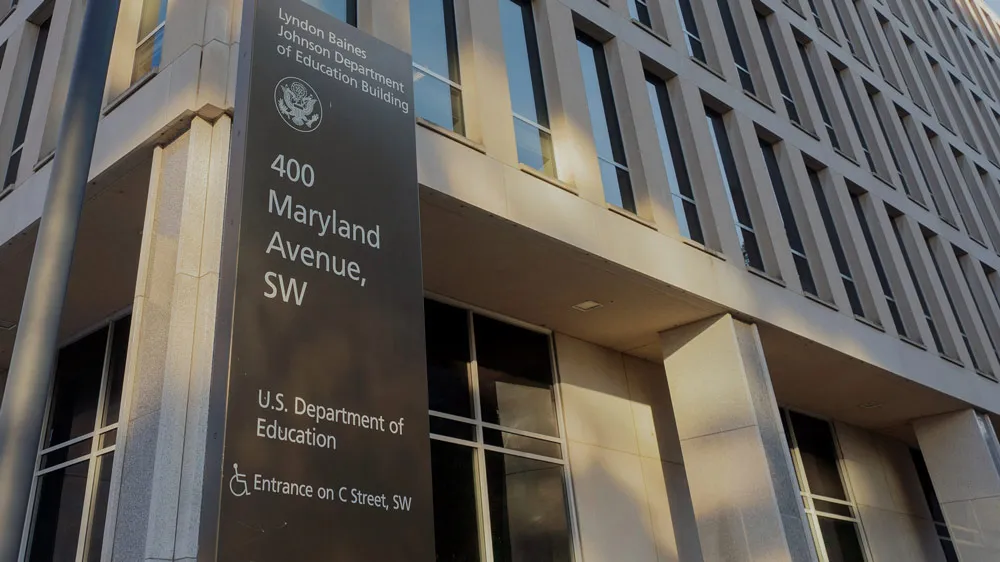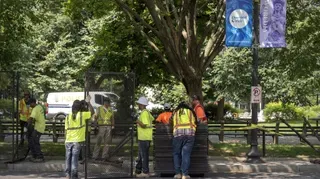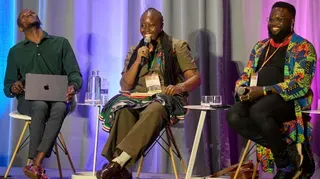October 21, 2010
Lawsuit Alleges Extensive Police Cover-Up in Atlanta Gay Bar Raid
Kilian Melloy READ TIME: 3 MIN.
Atlanta police defied a court order and destroyed evidence pertaining to a raid on a gay bar, a suit filed in federal court alleges.
The 2009 police raid on the Atlanta Eagle reportedly involved 48 officers. The raid resulted in several arrests, but a judge acquitted those who were accused earlier this year. Even at the time of the acquittal, there were complaints that the Atlanta police were not cooperating with the Atlanta Citizen Review Board.
The ruling, which was issued last March, followed months of stonewalling by police. The Board had begun to investigate the raid, in which 62 patrons were reportedly detained and eight employees placed under arrest. When the police proved uncooperative, the board threatened to issue subpoenas, reported an Atlanta Journal-Constitution article from Feb. 18.
"We have been dealing with this issue of officers' refusal to cooperate for a long time," Seth Kirschenbaum, a lawyer who serves as the board's vice chairman, told the newspaper.
"The union's stance is we're still going to protect officers' due process rights no matter what the members of the citizen review board have to say about that," said the Atlanta Police Union's Lt. Scott Kreher at the time. "We're going to have them follow the [standard operating procedures] of the department, which requires them to go down but doesn't require them to testify." Kreher went on to point out that not only was an internal investigation ongoing, but a civil suit had also been brought against the department.
The police raid ostensibly took place because undercover police saw sex acts taking place in public at the bar. Authorities also said that nude dancing had been taking place without the bar having the proper licenses for adult entertainment. Also, authorities said that drug violations had been seen at the bar.
But bar owner Richard Ramey, who was not charged, took issue with how the raid reportedly went down, with officers allegedly forcing patrons to lie face-down on the floor, handcuffing them, and subjecting them to searches. Some patrons claimed that the officers taunted them with anti-gay epithets. "Our problem is with the way our customers were treated," Ramey told the Atlanta Journal-Constitution in a Sept. 12, 2009 article, published just two days after the raid.
"I'm thinking, this is Stonewall. It's like I stepped into the wrong decade," bar patron Nick Koperski told the paper at that time.
"Before I knew it I was being handcuffed," said bartender Chris Lopez. "[The police] were going from patron to patron, having everyone turn out their pockets."
But the case came to naught in court, when Municipal Judge Crystal Gaines found three defendants not guilty of license violations. Charges against the other five were then dropped. "We always thought from the beginning that we were charged for no reason," Ramey said. "They had no right to be there." A federal suit against the Atlanta Police Department and the city followed.
Now, further accusations have been leveled at the police, The Atlanta Journal-Constitution reported on Oct. 21. Lawyers for the Atlanta Eagle and some of the individuals who were detained claim that evidence such as emails and photographs have vanished, and information on cell phones erased after U.S. District Judge Timothy Batten instructed that it be made available to the plaintiffs.
"Throughout this litigation the defendants and their counsel have acted as if the rules, the law and even the orders of this court simply do not apply to them," Daniel Grossman, a lawyer for the plaintiffs, wrote. "Rather than produce evidence pursuant to this court's order, they destroyed it. These violations involved all 35 defendants and at least eight individual attorneys. The judicial process cannot function when parties and their counsel so flagrantly, pervasively and deliberately ignore their obligations."
According to the suit's claims, computer records were destroyed following the judge's orders that evidence be turned over. Moreover, when the cell phones of 35 police officers were requested for evidence that they might have contained, 22 officers refused to surrender their phones as requested, giving them to a department technician instead. Data from those cell phones was erased by the technician, according to documents.
"There's no way that there's no data relevant to this case on all those electronic devices," said Judge Batten during a conference call on Aug. 24, the article reported. "That's just not the way the world works today."
"We take these allegations seriously, and will investigate them thoroughly and respond at the appropriate time," stated the city attorney, Cathy Hampton. "However, we cannot comment in detail because these allegations were made as part of ongoing litigation."
Kilian Melloy serves as EDGE Media Network's Associate Arts Editor and Staff Contributor. His professional memberships include the National Lesbian & Gay Journalists Association, the Boston Online Film Critics Association, The Gay and Lesbian Entertainment Critics Association, and the Boston Theater Critics Association's Elliot Norton Awards Committee.






